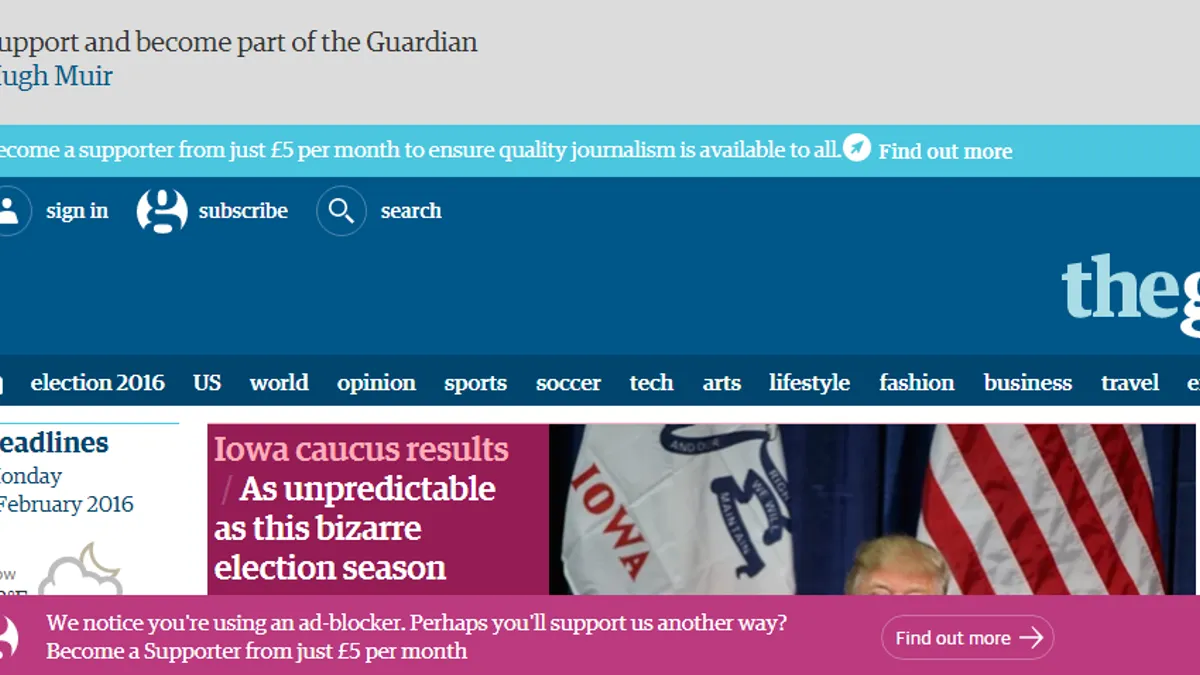Dive Brief:
- Ad blocking technology impacts marketers, ad tech firms and publishers, but publishers’ revenue is directly affected with every ad that goes unserved. This makes research from MediaRadar that found only 4% of large digital publishers are actively battling ad-blocking software use somewhat surprising.
- The research looked at 100 large websites and found only CBS, the Guardian, EBay and Forbes took action like not serving content to visitors using ad blocking software, or asked them to disable the software or take other actions, according to Bloomberg Business.
- Some publishers have taken a hands-off approach to visitors using ad blocking software and are ramping up other revenue streams, such as Huffington Post increasing its sponsored content because native ads are typically not blocked by ad blocking tech.
Dive Insight:
Ad blocking appears to be a growing issue, with the Interactive Advertising Bureau (IAB) stating more than a third of Americans used ad blockers by the end of 2014. Research from PageFair and Adobe Systems from last year found 45 million Americans were using the tech in the summer, a figure up close to 50% from the previous year.
Further, tensions are coming to a boil between the advertising community and ad blocking providers. Just last week at the IAB's annual leadership conference, IAB President Randall Rothenberg declared that ad blocking is at war with freedom of expression.
While publishers are waking up to the dangers of ad block use to their bottom lines and looking into alternate revenue streams instead of taking ad blocking visitors head-on, they are also not fighting ad blockers out of concern they might rub tech savvy visitors the wrong way.
Last month, Slate’s Director of Product Development David Stern told the Wall Street Journal the digital publisher was losing a notable amount of revenue to ad blockers. Stern said that there was an internal debate on whether it was worth fighting visitors for that revenue, concluding that punishing those users might alienate them. He said that tech savvy readers are potentially more likely to share content that might reach readers not using the ad blocking technology.










